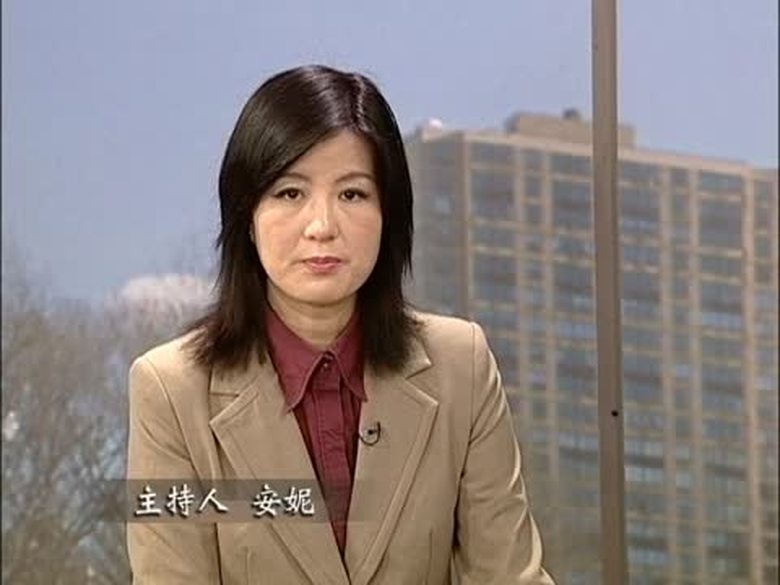【新唐人2011年5月31日訊】中國網路「打金」遊戲盛行,犯人也被利用在虛擬世界中賺錢。媒體報導,大陸監獄為了彌補財政缺口,利用囚犯廉價的勞動力,為獄方創造收入,而大玩金錢遊戲。
一名曾經在黑龍江雞西市服過刑的勞教犯,向英國的《衛報》(The Guardian)披露,自己在服刑期間,白天要勞動12小時,晚上還要上網「打金」----玩遊戲積纍點數,為獄警賺錢。
而過去國際媒體也曾經報導,為了「創收」,大陸一些監獄多會利用自己的權力來賺錢。還發生過出售死囚器官、向探監者收取「見面費」、甚至還開設「特殊見面室」供囚犯娛樂的現象。
曾經在監獄裡度過三年零八個月的中國經濟學者綦彥臣表示,監獄靠犯人的廉價勞動力掙取低端收入的事情是存在的。
綦彥臣(中國經濟學者):「中國監獄包括看守所,它的勞動系統,在勞動市場產品結構裡的分工,它就要作高時間、高人力投入、低技術含量的這種工作。因為監獄人多,最主要的是不用付工資。他在滄州市第一看守所,獄警甚至當著犯人面前說,可以讓家裏拿錢來買勞動量。」
綦彥臣(中國經濟學者):「被羈押的犯人不但本身受盤剝,家庭也要受盤剝。比如你勞動過量你要吃雞蛋,甚至吃燒雞,這些錢哪裏來?就是你家供養你在此的營養成分,主要按他們的勞動量。他(監獄隊長)公開的當著200多犯人講,你可以不幹活,像政治犯一樣,他們家每月給點錢,他要每月交給我200塊錢,我就甚麼事情都不讓他做了。」
中國民主黨負責人何德普2003年被捕,北京中級法院以「煽動顛覆國家政權罪」,判處他有期徒刑8年。今年1月24號刑滿出獄的何德普向《新唐人》表示,大陸監獄長期存在向犯人高價出售物品的現象。
何德普(中國民主黨負責人):「每個監獄可能形式不同,方式也不一樣,但是都是對犯人進行剝削、對犯人進行壓迫,這個是有共性,向犯人出售高價香菸、向犯人高價出售食品,從犯人身上賺取差價。」
何德普表示,犯人的伙食費也是監獄「創造收入」的一部分。他說,北京的監獄核算犯人每個月的伙食費是一人180元北京的監獄提供犯人每人一個月180元伙食費,但犯人只能吃到百分之十,監獄伙食非常差,他曾經多次提出抗議,但長期以來不見改善,因為這和監獄長有利益衝突。
何德普:「任命生活衛生科科長就是監獄長任命的,他提出任命了,這個職位他有賺錢的機會,任命制,所以他任命這官兒,這官兒就有從中牟私利方面的條件,所以主要責任還在監獄長。」
浙江民主人士範子良,在浙江省金華十里坪勞教所經歷了二年的監獄生活,他說,監獄裡送錢也可以加分減刑。
範子良:「我在那兒的時候就作打火機,到市場上去賣,有的織那羊毛衫。這個任務很緊的,有的沒有辦法,完不成任務,甚至自殺的也有。有一個溫州人自殺了好幾次耶!我記得我那個班長,他坐兩年或三年牢,他花了15萬多,包括這裡頭的花費。一般用不著帶錢進去。」
中國大陸的監獄在財政撥款壓縮下,為了維持開銷,用盡各種方式創造收入,也創造出中國式的監獄特色。「勞改基金會」今年發表的一份報告顯示,中國有一百多家勞改工廠在互聯網用英文做廣告,向包括美國在內的國際市場宣傳出口勞改產品。
新唐人記者梁欣、李庭、李月採訪報導。
Prisoners Forced to Play Money Games
Internet money games are popular in China.
Prisoners are forced to play and make “money”
in the virtual world for the prison. In China,
jails use cheap prisoners』 labor to make profit.
An ex-prisoner from Heilongjiang province
disclosed to The Guardian that while in jail,
he worked 12-hours a day, and in the evening
he had to play an Internet “money game”
to accumulate points for jail guards.
International media reported that to make money,
Chinese prisons have sold prisoners』 organs,
collected fees for family visits,
and even set up a “special meeting room”
for the new gaming phenomenon.
Qi Yanchen, an economist once imprisoned,
confirmed the use of prisoners to make money.
Qi Yanchen: “Prisons and detention centers
in China have a labor system of long hours,
heavy labor input, and low technical command.
Prisoners are many, and no salaries are paid.”
Qi witnessed at a detention center in Changzhou
a guard saying to prisoners that they could pay
to get themselves out of doing labor.
Qi Yanchen: “Prisoners and their families
are exploited. You are overworked, want to eat
eggs, chicken, but where to get the money from?
Your family must pay, based on your workload.
A prison guard said openly to over 200 prisoners
that they do not have to work if their families pay.
『Give me RMB200 a month, I』ll let you off work.』”
Democratic leader He Depu was arrested in 2003,
and sentenced to 8 years for subversion.
He came out this January, and said to NTD
that prisons charge high prices on goods.
He Depu: “Each prison may use different means,
but all exploit prisoners and oppress them.
They sell cigarettes and food at high prices.“
He said, prisons make money of prisoners』 food.
Beijing prisons claim food cost per prisoner
is RMB180 per month, but is only one tenth of it.
Food quality is extremely poor.
He protested repeatedly, but in vain.
This is due to prison guards』 money interests.
He Depu: “Prison guard in charge of daily costs
is appointed by the head guard and this is
a money-making opportunity, so he makes profit,
and the problem is still with the head guard.”
Democracy activist Fan Ziliang was jailed
for 2 years in Zhejiang province.
He said bribery can help reduce the sentence.
Fan: “I was making cigarette lighters in there,
some made cashmere sweaters. Some could not
meet the quota and committed suicides. A fellow
from Wenzhou tried to kill himself several times.
My warder spent RMB150,000+ for 2-3 years there.
Usually you don』t bring money in the jail.”
Government funding for prisons has decreased.
To operate, prisons use all means to make money.
This is a prison with Chinese characteristics.
Laogai Foundation reported this year
that over 100 labor camps advertise their products
on the international market, including the U.S.』
NTD reporters Liang Xin, Li Ting and Li Yue
























